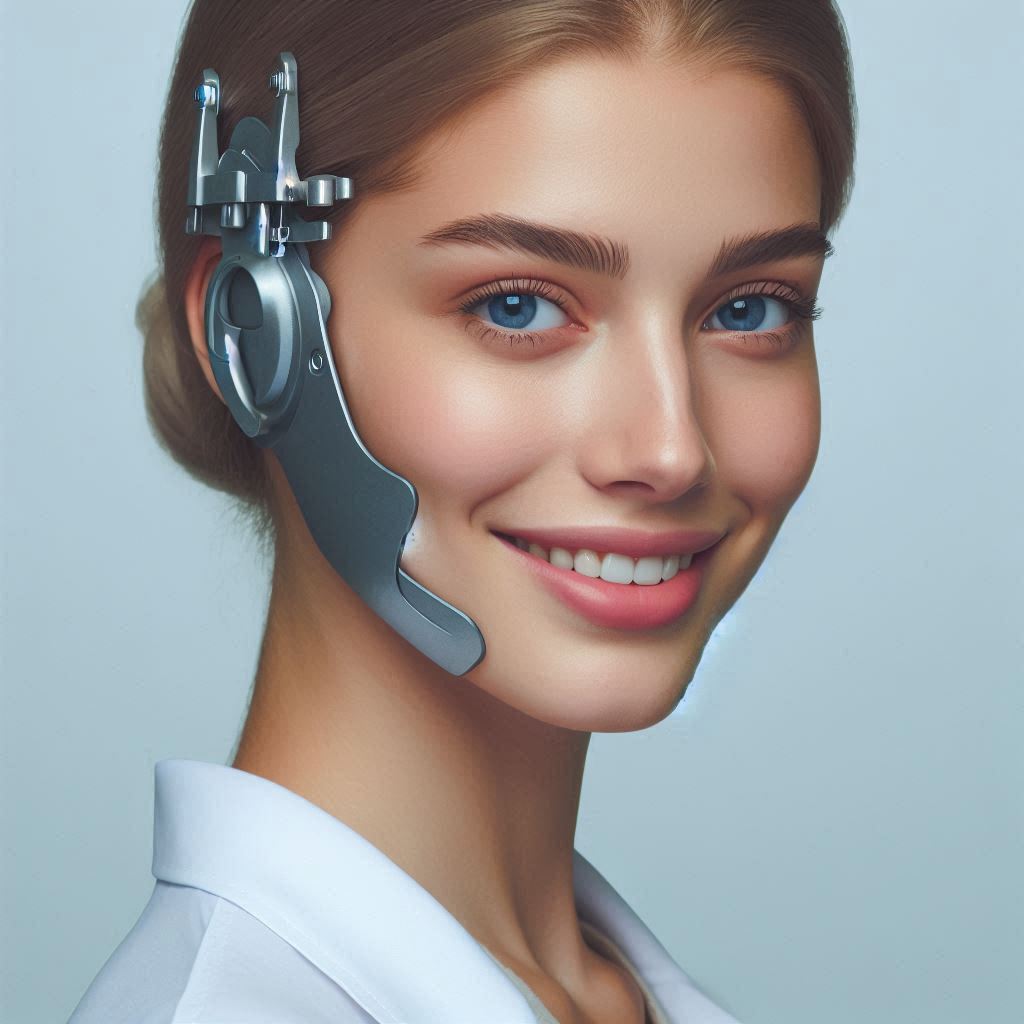Introduction
Regular eye check-ups are essential for maintaining good eye health and preventing vision problems.
The goal of this blog post is to provide tips on how to prepare for your first visit to an optometrist.
- Do Your Research: Before your appointment, research your family’s eye health history and any symptoms you may be experiencing.
- Make a List: Write down any questions or concerns you have about your eye health to discuss with the optometrist.
- Bring Your Glasses/Contacts: Remember to bring your current glasses or contact lenses to your appointment for the optometrist to review.
- Know Your Insurance: Check with your insurance provider to understand your coverage for eye exams and any potential out-of-pocket costs.
- Arrive Early: Plan to arrive early for your appointment to fill out any necessary paperwork and provide your medical history.
- Be Honest: Be honest with the optometrist about your overall health, medications, and any eye-related symptoms you may have.
- Ask Questions: Don’t be afraid to ask the optometrist questions about your eye health, any recommendations, or treatment options.
- Follow Up: After your appointment, schedule any necessary follow-up visits or tests recommended by the optometrist.
By following these tips, you can ensure a successful and productive first visit to the optometrist.
Research Optometrists in Your Area
When preparing for your first visit to an optometrist, the first step is to research optometrists in your area.
Here are some tips to help you find the right optometrist for your needs:
Schedule an Appointment
Once you have found a few optometrists that you are interested in, the next step is to schedule an appointment. Here are some tips for scheduling your first visit:
- Call the optometrist’s office and inquire about appointment availability.
- Ask about any specific requirements for new patients, such as forms to fill out or insurance information to bring.
- Choose a time that is convenient for you and fits into your schedule.
- Be prepared to provide your contact information and any relevant medical history.
Prepare for Your Visit
Before your first visit to the optometrist, there are a few things you can do to prepare. Here are some tips to help you get ready:
- Make a list of any questions or concerns you have about your eye health.
- Gather any previous eye exam records or prescription information to bring with you.
- Bring a list of any medications you are currently taking, including over-the-counter and prescription drugs.
- Consider bringing a trusted friend or family member with you for support.
During Your Visit
When you arrive for your first visit to the optometrist, there are a few things you can expect.
Here is a general outline of what may happen during your appointment:
- You will be asked to fill out any necessary paperwork, including a medical history form.
- The optometrist will conduct a comprehensive eye exam, which may include tests for visual acuity, eye pressure, and eye health.
- You will have the opportunity to discuss any concerns or questions you have with the optometrist.
- The optometrist will review your test results and provide recommendations for any necessary treatments or follow-up care.
Follow-Up Care
After your first visit to the optometrist, it is important to follow any recommendations for follow-up care. Here are some tips to help you maintain good eye health:
- Follow the optometrist’s recommendations for any prescribed treatments or medications.
- Schedule regular eye exams to monitor any changes in your vision or eye health.
- Protect your eyes from UV rays by wearing sunglasses when outdoors.
- Eat a healthy diet rich in fruits and vegetables to support good eye health.
By following these tips and preparing for your first visit to the optometrist, you can ensure that you get the most out of your appointment and take proactive steps to maintain good eye health.
Remember, your eyes are an important part of your overall health, so it’s essential to prioritize regular eye care.
Read: Top Universities for Orthotist/Prosthetist Programs
Gather necessary paperwork and information
Collect your medical history, including any previous eye conditions or surgeries
Before heading to your first visit to an optometrist, it’s essential to gather all the necessary paperwork and information to ensure a smooth and efficient appointment.
One of the most critical pieces of information to bring with you is your medical history.
Transform Your Career Today
Unlock a personalized career strategy that drives real results. Get tailored advice and a roadmap designed just for you.
Start NowThis includes any previous eye conditions or surgeries you may have had in the past.
Providing this information to your optometrist can help them understand your eye health better and make more informed decisions regarding your care.
Bring your current eyeglasses or contact lenses prescription, if applicable
If you currently wear eyeglasses or contact lenses, be sure to bring your most recent prescription with you.
This will allow the optometrist to assess whether your prescription needs to be updated or adjusted during your visit.
Additionally, having this information on hand can expedite the process of ordering new glasses or contacts if necessary.
Have your insurance information ready for verification
Another essential item to bring to your first optometry appointment is your insurance information.
Most optometrists accept various insurance plans, so having your insurance details ready for verification can help streamline the billing process and ensure that you get the most out of your benefits.
By taking the time to gather all the necessary paperwork and information before your first visit to the optometrist, you can help ensure that your appointment goes smoothly and that you receive the best possible care for your eyes.
Read: Exploring the Salary Range for Optometrists in the USA
Prepare a list of questions and concerns
Write down any symptoms or changes in your vision that you have noticed
When preparing for your first visit to an optometrist, it is essential to have a list of questions and concerns ready.
This will help ensure that you get the most out of your appointment and address any issues you may be experiencing.
By jotting down any symptoms or changes in your vision that you have noticed, you can provide your optometrist with valuable information that will assist them in diagnosing any potential problems.
This could include things like blurry vision, eye pain, dry eyes, or double vision.
Be as detailed as possible in describing these symptoms to help your optometrist understand your situation better.
Transform Your LinkedIn into a Job Magnet
Picture recruiters reaching out to you daily. We craft personalized LinkedIn profiles that stand out, boosting your visibility in ways others can't. Elevate your career now.
Upgrade NowPrepare questions about your eye health
In addition to noting your symptoms, it is a good idea to prepare questions about your eye health.
This could involve asking about risk factors for specific eye conditions, such as glaucoma or macular degeneration, especially if you have a family history of these conditions.
You may also want to inquire about ways to protect your eyes and maintain good eye health, such as the importance of wearing sunglasses or how to prevent eye strain from screen time.
Having these questions and concerns written down will ensure that you do not forget to discuss anything important during your visit.
It will also show your optometrist that you are proactive about your eye health and willing to take the necessary steps to maintain good vision.
Remember, your optometrist is there to help you, so do not be afraid to ask questions or seek clarification on any topic related to your eye care.
Read: Optometry Career Outlook: Job Opportunities and Growth

Dress Comfortably and Appropriately for the Appointment
When preparing for your first visit to an optometrist, it’s important to dress in a way that allows for easy access to your eyes.
Here are some tips on how to dress for your appointment:
Choose Clothing that Allows Easy Access to Your Eyes
Optometrists need to examine your eyes closely during the appointment, so it’s best to wear a top with buttons or a loose neckline.
This will make it easier for them to conduct the necessary tests without any restrictions.
Avoid Wearing Eye Makeup or Contact Lenses
On the day of your appointment, try to refrain from wearing any eye makeup or contact lenses if possible.
This will ensure that your optometrist can get an accurate reading of your eyes and provide you with the best possible care.
By dressing comfortably and appropriately for your first visit to an optometrist, you’ll make the experience smoother and more effective for both you and the eye care professional.
Craft a Resume That Tells Your Story
At American Profession Guide, we craft resumes and cover letters that tell your unique professional story. Stand out with documents tailored to your industry and showcase your strengths to land your dream job.
Email UsRemember, your eye health is important, so it’s worth taking the time to prepare properly.
Read: Essential Skills for a Successful Orthotist/Prosthetist Career
Arrive Early and Be Prepared
When preparing for your first visit to an optometrist, it is essential to plan ahead and arrive early for your appointment.
Here are some tips to help you make the most out of your visit:
Plan to Arrive Early
It is crucial to arrive at least 15 minutes before your scheduled appointment time.
This will give you some buffer time in case of any unforeseen delays, such as traffic or paperwork that needs to be filled out.
Bring Entertainment
While waiting for your appointment, it’s a good idea to bring a book or magazine to pass the time.
This can help make the waiting period more enjoyable and keep you occupied while you wait to see the optometrist.
Be Ready to Discuss Your Medical History
One of the most important aspects of your first visit to an optometrist is discussing your medical history and any concerns you may have.
Be prepared to provide information about any past eye conditions, allergies, medications, or surgeries you have had.
It is also helpful to write down any specific questions or issues you want to address during the appointment.
This can help ensure that you get the most out of your visit and that all of your concerns are addressed by the optometrist.
By following these tips and being prepared for your first visit to an optometrist, you can make the most out of your appointment and ensure that you receive the best care possible for your eyesight.
Follow any pre-appointment instructions provided
Fill out before the appointment, make sure to complete them in advance
Before your first visit to the optometrist, it’s essential to follow any pre-appointment instructions provided to ensure a smooth and efficient visit.
Optometrists may ask you to fill out forms regarding your medical history, current medications, or specific eye-related concerns.
It’s crucial to complete these forms accurately and thoroughly to provide the optometrist with all the necessary information.
Follow any guidelines for fasting or medication restrictions, if necessary
Additionally, the optometrist may provide specific guidelines for fasting or medication restrictions before your appointment.
This is important, as certain medications or foods can affect the results of your eye examination.
By following these pre-appointment instructions, you will help the optometrist better understand your eye health and provide you with the best possible care during your visit.
It’s essential to adhere to these guidelines to ensure a successful and productive appointment.
Conclusion
As you prepare for your first visit to an optometrist, remember to research optometrists in your area.
Collect any necessary paperwork ahead of time to streamline the check-in process.
Prepare a list of questions or concerns you have about your eyesight or any symptoms you may be experiencing.
Dress appropriately for your appointment to make a good impression.
Plan to arrive early to fill out paperwork and familiarize yourself with the office layout.
Follow any instructions given to you by the staff or optometrist during your visit.
By taking proactive steps to prepare for your appointment, you can prioritize your eye health and ensure a smoother experience at the optometrist’s office.
Make the most of your first visit by being informed and organized.




